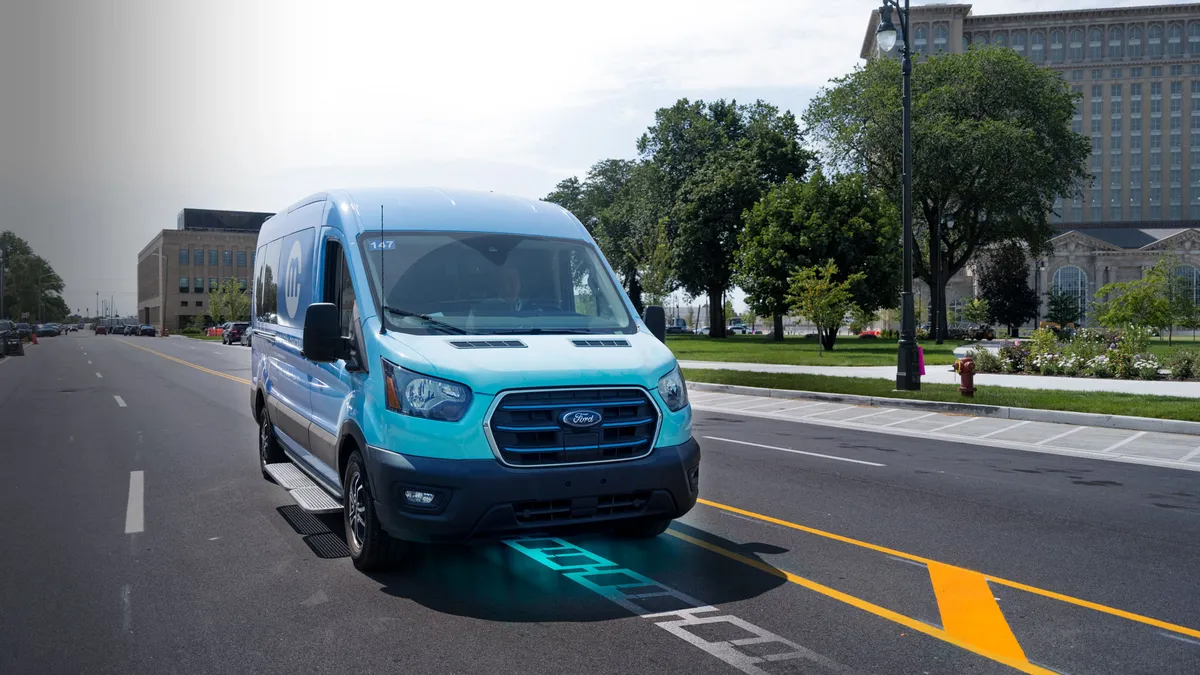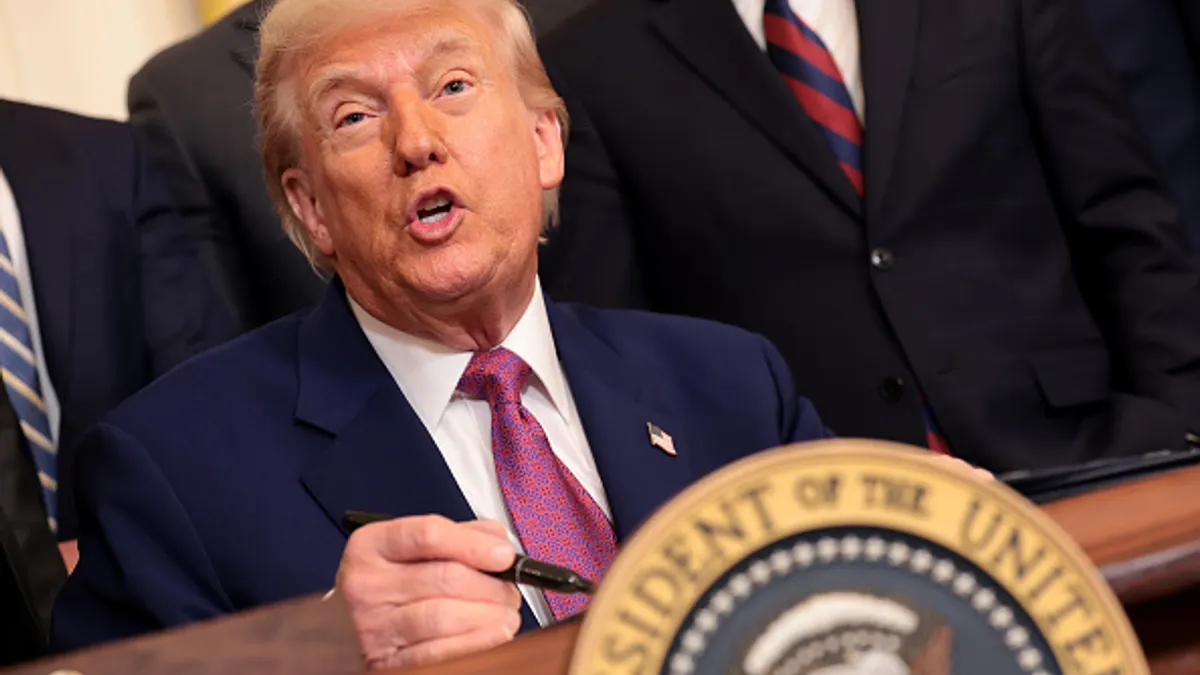A transportation innovation district in Detroit recently demonstrated a wireless charging roadway, technology that is meant to allow EVs either moving or parked along the roadway to charge their batteries without plugging in.
The quarter-mile electric road was designed by Electreon, which was awarded a $1.9 million contract by the Michigan Department of Transportation in early 2022 to develop a wireless charging roadway. The roadway is one of the technologies designed at Michigan Central, the billion-dollar innovation center and subsidiary of Ford Motor Company.
To enable the electric road, crews installed rubber-coated copper coils beneath the roadway, which is located on the Michigan Central campus in Detroit’s Corktown neighborhood. When EVs outfitted with Electreon receivers pass over the road’s embedded copper coils, the batteries charge wirelessly. Michigan Central and Electreon demonstrated the wireless charging technology on a strip of road last week with a Ford E-Transit commercial van equipped with an Electreon receiver.
As EVs gain popularity, ensuring charging infrastructure is both available and accessible has been a priority for automakers and governments. In July, BMW, General Motors, Honda, Hyundai, Kia, Stellantis and Mercedes-Benz said they would collaborate in a joint venture to install at least 30,000 high-powered electric vehicle chargers along major highways and in urban areas in North America. The first charging stations will open in the U.S. next summer.
Yesterday, Ford Pro, the automaker’s commercial arm, and utility provider Xcel Energy said they would partner to install 30,000 EV charging stations for business fleets by 2030. They will start first in Colorado and Wisconsin next year.
The Biden administration also has a goal to build 500,000 EV chargers across the country.
Roadway charging technology “may be the catalyst to accelerate interest and acceptance of EVs for all consumers,” Bradley Wieferich, director of the Michigan Department of Transportation, said in a statement.
Such technology may also mitigate “range anxiety” — the fear that an EV battery will run out of power before it can reach a charging station. However, a recent Recurrent survey found that a person’s range anxiety substantially falls after actually purchasing an EV.
Electreon is working on similar roadways in France, Sweden, Germany, Norway and Italy. The Michigan wireless charging road is expected to be open to the public within the next few years. When complete, it will be one-mile long.
Michigan Central was the brainchild of Ford executive Bill Ford Jr. with the goal to become a tech hub developing mobility solutions for a community.














